As I’ve mentioned more times than I should have, I have had very low expectations for the Biden foreign policy since the beginning. By “the beginning”, I mean well before his election, when you couldn’t find foreign policy positions on his campaign web site for love or money. Biden’s fifty-year track record on foreign affairs is not a particularly good one. I remember him saying he was “ashamed” of Reagan’s “constructive engagement” policy towards apartheid South Africa back in the 1980s. Um …. that’s about it.
These past two weeks have done little to change my mind on this. The drone assassination of Ayman al-Zawahiri, the al Qaeda leader, prompted a lot of fist-pumping on the part of mainstream Democrats and some never-Trump Republicans. A similar amount of jingoism accompanied House Speaker Nancy Pelosi’s visit to Taiwan, as well. I’m not certain what the expected takeaway is for either of these decisions, but it the point was to demonstrate beyond a shadow of a doubt that the current Democratic leadership is well vested into America’s imperial enterprise, they certainly succeeded.
A child of bad policy
Ayman al-Zawahiri was a terrible person, there’s no question. I think, though, as we are the one global super-power, it’s probably a good idea to consider how our policy may have contributed to his no-goodness. Al-Zawahiri started down the road to al Qaeda when he was imprisoned by the Mubarak regime, where he and his fellow prisoners from Egypt’s Muslim Brotherhood were tortured, killed, and otherwise abused. Egypt, I will remind you, has long been a major recipient of U.S. aid, far beyond what nearly every other nation has received from us. If Egypt’s notoriously brutal prison system contributed to al-Zawahiri’s radicalism (which it most certainly did), we bear considerable responsibility for that.
Secondly, there likely wouldn’t have been an al-Qaeda for him to join up with if it hadn’t been for (1) the Afghan CIA operation during the 1980s, and (2) the first gulf war in 1990-91, when U.S. troops were stationed in Saudi Arabia for the first time, remaining there long after Iraq was driven from Kuwait. Again, these were policy choices, not forces of nature. Without multiple interventions in the middle east and southwest Asia, America might not have been such a big, attractive target for these people. Can’t be sure, but …. might have been worth a try.
Worst of the worst?
Then there’s the question of how many lives were lost at the hands of al-Zawahiri. I would argue far too many. As Rachel Maddow pointed out on her show last week, he had a long history of planning terrorist actions, including being one of the masterminds of the September 11 attacks, the bombings in Kenya and Tanzania in 1998, the U.S.S. Cole in 2000, and so on. So, thousands of live lost. Not a nice person, right?
Now, there should be some reckoning as to how that record stacks up to the record of his pursuers. All killing is intrinsically bad, so I’m not suggesting that the rapacious policies of the United States somehow lessen the severity and the cravenness of al-Zawahiri’s attacks. But if it’s bad when he does it, then it’s bad when others do it as well, right? And if others do a lot more killing than he did, well … that makes them particularly bad, right?
Let’s just stick to the wars that followed 9/11. How many people died as a result of our actions? Was it less or more than the number of al-Zawahiri’s victims? In all honesty, America’s victims through this period run in the high six-figures to perhaps seven figures. Several countries were destroyed essentially beyond recovery. Fist pump, anyone?
Unfair comparisons
Okay, I know …. it’s really not fair to compare nation states like the U.S. to non-state actors like al Qaeda or individuals like al-Zawahiri. Nation states have international obligations, responsibilities, and should at least formally be accountable to their populations. Terror networks are kind of a law unto themselves, though international law does bear on them. But honestly …. shouldn’t we expect more out of our own government then that they should be responsible for hundreds or even thousands of times the number of deaths caused by our most ruthless enemies?
Seems like kind of a low bar.
luv u,
jp


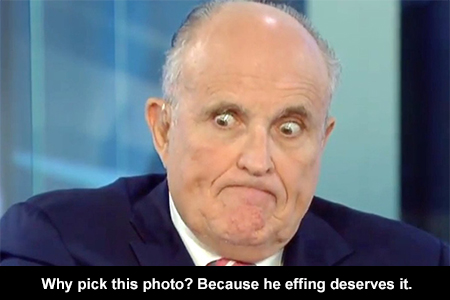
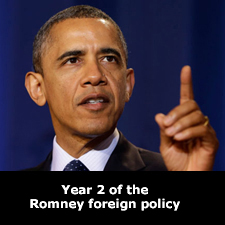 This is a cultivated disconnect, certainly no accident. Every day, the news media hammer away at the threat of Ebola, of ISIS, of Russia, and to a lesser extent North Korea and Iran. In the case of the former, we’re reaching a near hysteria about a virus that has affected only a handful of Americans, and only three cases in the U.S. The public has been worked up into such a lather that politicians are falling over themselves to try to benefit from it, take advantage of it, channel it in some way that is useful to them. One only wishes we could evoke this sort of reaction on actual threats, like our disastrous automotive transportation system that kills over 30,000 of us a year.
This is a cultivated disconnect, certainly no accident. Every day, the news media hammer away at the threat of Ebola, of ISIS, of Russia, and to a lesser extent North Korea and Iran. In the case of the former, we’re reaching a near hysteria about a virus that has affected only a handful of Americans, and only three cases in the U.S. The public has been worked up into such a lather that politicians are falling over themselves to try to benefit from it, take advantage of it, channel it in some way that is useful to them. One only wishes we could evoke this sort of reaction on actual threats, like our disastrous automotive transportation system that kills over 30,000 of us a year.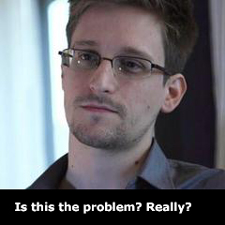 Even something as seemingly simple as closing Guantanamo. It would have enormous symbolic value, of course. But even though the president professes to want it closed, it remains open. Why? Why haven’t those cleared for release been released? Why haven’t the ones determined innocent / not a threat been moved to some residential setting that isn’t a prison cell? It’s almost as if that policy level is beyond the reach of democratically elected officials. We seem frozen in place since 9/11, unable to adjust our course, unable to accomplish practically anything aside from blowing things up, assassinating people, and spying on their ass. Hunger striking inmates are force fed, even though the president – a constiitutional lawyer – knows that that is abusive and wrong. Can’t change it.
Even something as seemingly simple as closing Guantanamo. It would have enormous symbolic value, of course. But even though the president professes to want it closed, it remains open. Why? Why haven’t those cleared for release been released? Why haven’t the ones determined innocent / not a threat been moved to some residential setting that isn’t a prison cell? It’s almost as if that policy level is beyond the reach of democratically elected officials. We seem frozen in place since 9/11, unable to adjust our course, unable to accomplish practically anything aside from blowing things up, assassinating people, and spying on their ass. Hunger striking inmates are force fed, even though the president – a constiitutional lawyer – knows that that is abusive and wrong. Can’t change it. I think the reason it looked so empty was that there were no flags to represent the hundreds of thousands that have died since that day, and in large part because of that day. The cautionary “Never Forget” is more of a challenge to Americans than its author likely supposed. I can tell you, I will never forget September 11, 2001 – probably the most deeply horrifying day of my life. Remembering that has never been a challenge. What I think we as Americans need to work on remembering is the fact that our political leaders used that atrocity to commit other atrocities in our names. If there is any slippage of memory, it is on that particular slope.
I think the reason it looked so empty was that there were no flags to represent the hundreds of thousands that have died since that day, and in large part because of that day. The cautionary “Never Forget” is more of a challenge to Americans than its author likely supposed. I can tell you, I will never forget September 11, 2001 – probably the most deeply horrifying day of my life. Remembering that has never been a challenge. What I think we as Americans need to work on remembering is the fact that our political leaders used that atrocity to commit other atrocities in our names. If there is any slippage of memory, it is on that particular slope.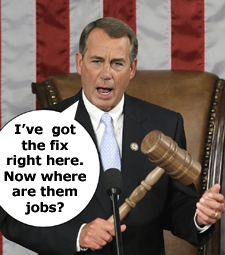 atrocities they played a central role in committing. Even with all this, I spent a good amount of time watching that film by those French guys who were with the firehouse that first responded to the Trade Tower disaster. Gripping stuff. Those firefighters are giants.
atrocities they played a central role in committing. Even with all this, I spent a good amount of time watching that film by those French guys who were with the firehouse that first responded to the Trade Tower disaster. Gripping stuff. Those firefighters are giants.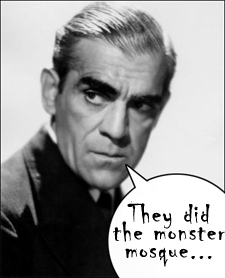 What you will hear exactly none of them say is that a) it is NOT a mosque; it is a community center with a prayer space in the upper floors, and b) it is NOT at ground zero or in the World Trade Center complex; it is two blocks away in the empty former Burlington Coat Factory building. And while Newt Gingrich (Remember him? He was what was fucked up about the nineties.) likens this to opening an office of the Nazi party next to the Holocaust Museum, it is really more like… someone opening a community center in an abandoned building. Perennial New York State also-ran Rick Lazio was on cable yesterday substituting his sorry judgment for that of the City of New York, complaining that this was not a residential district but a business district. Well, hell – so this is a zoning issue, is it, Rick? Sounds like what they used to use to keep black people out of certain neighborhoods.
What you will hear exactly none of them say is that a) it is NOT a mosque; it is a community center with a prayer space in the upper floors, and b) it is NOT at ground zero or in the World Trade Center complex; it is two blocks away in the empty former Burlington Coat Factory building. And while Newt Gingrich (Remember him? He was what was fucked up about the nineties.) likens this to opening an office of the Nazi party next to the Holocaust Museum, it is really more like… someone opening a community center in an abandoned building. Perennial New York State also-ran Rick Lazio was on cable yesterday substituting his sorry judgment for that of the City of New York, complaining that this was not a residential district but a business district. Well, hell – so this is a zoning issue, is it, Rick? Sounds like what they used to use to keep black people out of certain neighborhoods.